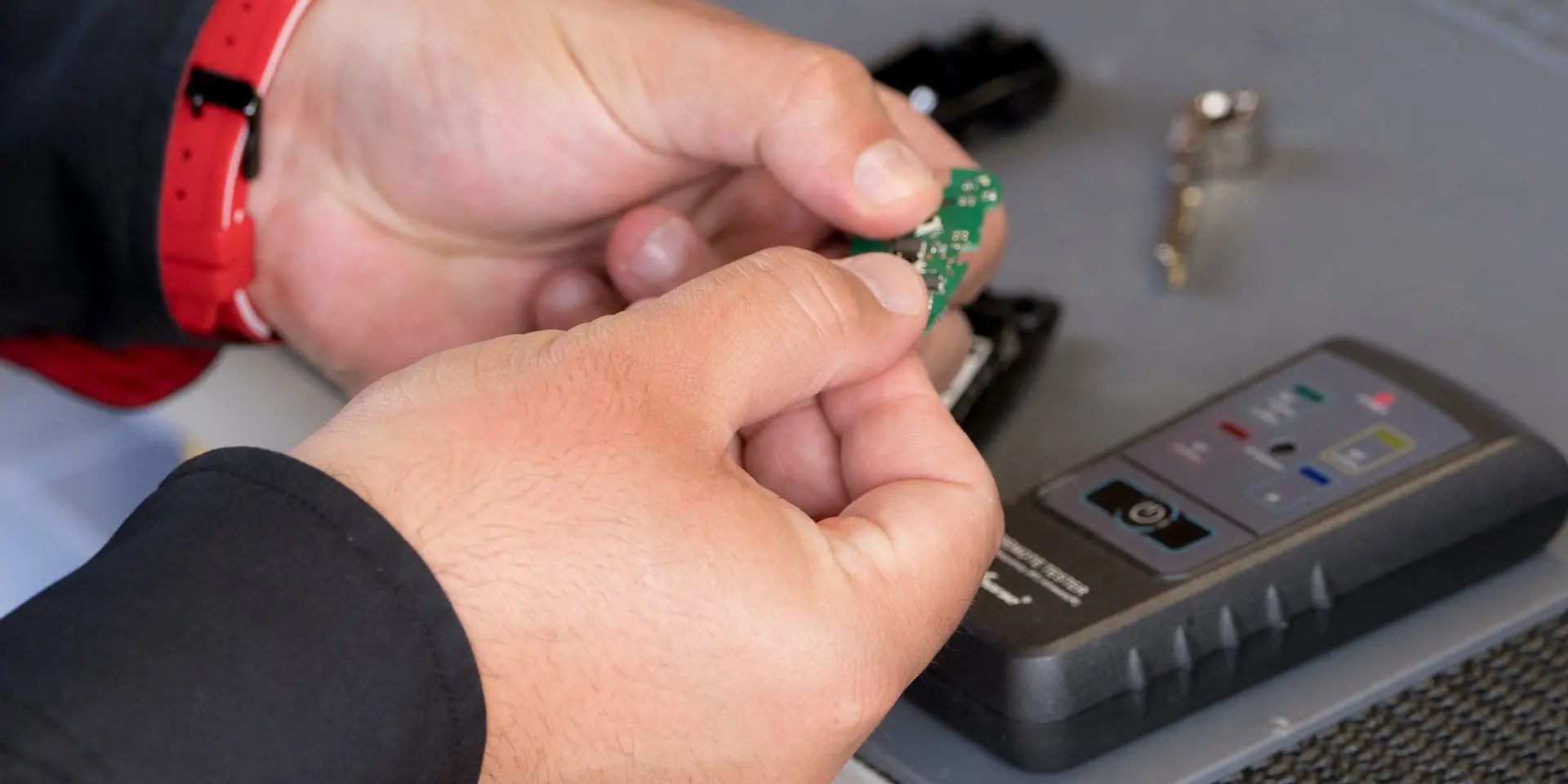Emergency Car Key Repair: A Comprehensive Guide
Car keys are an important part of vehicle ownership, and their unexpected breakdown can trigger significant inconvenience. Whether lost, broken, or harmed, knowing how to handle emergency car key repair is vital for any vehicle owner. This comprehensive guide checks out numerous elements of car key repair and replacement, resolving typical concerns, potential solutions, and the importance of expert services.

Comprehending Car Keys
Modern car keys been available in various types, each featuring distinct innovations and performances. The main types consist of:

- Traditional Mechanical Keys: The simplest kind, these keys run through a mechanical locking system.
- Transponder Keys: Equipped with a chip that communicates with the car's ignition system for enhanced security.
- Key Fobs: Remote access systems that frequently include keyless entry features.
- Smart Keys: Advanced systems that enable keyless ignition and entry, typically discovered in newer automobiles.
Common Issues with Car Keys
In emergency scenarios, understanding the cause of car key breakdown can assist figure out the ideal approach for repair. Some regularly encountered issues consist of:
- Key Breakage: Often happens due to wear and tear or excessive pressure when inserting or turning the key.
- Lost Keys: Misplacement or loss of keys can leave a vehicle owner stranded.
- Dead Key Fob Battery: A common concern with remote keys, resulting in failure in keyless entry or ignition.
- Transponder Key Malfunction: If the chip in the key is harmed, the vehicle might not acknowledge the key.
- Lock Cylinder Issues: Problems with the ignition or door lock cylinders can avoid the key from turning appropriately.
DIY Emergency Car Key Repairs
Before availing professional services, particular circumstances may enable DIY repairs. However, these methods depend upon the concern at hand. Below are some approaches:
1. Broken Key Repair
Materials Needed: Super glue, a set of pliers, and damp wipes.
Steps:
- Carefully align the 2 pieces of the broken key.
- Apply a percentage of extremely glue to the break and hold the key together for a couple of minutes.
- Wrap the key with tape to offer extra assistance while the glue dries.
- If the key breaks once again, consider getting a duplicate made.
2. Dead Key Fob Battery Replacement
Products Needed: New battery (generally CR2032), little flat-head screwdriver.
Steps:
- Open the key fob using the screwdriver.
- Remove the old battery thoroughly.
- Replace it with a brand-new battery, ensuring the favorable (+) side faces the proper direction.
- Close the fob and test the functions.
3. Lock Cylinder Issues
If your key won't turn in the lock, it might be due to debris or issues with the cylinder itself.
Materials Needed: Lubricant spray, an old toothbrush or fabric.
Actions:
- Spray a percentage of lubricant into the lock cylinder.
- Use a fabric or old toothbrush to clear any debris or dirt.
- Try to turn the key carefully.
When to Seek Professional Help
While lots of problems may be solved through DIY methods, some issues need the expertise of an expert locksmith or car dealer. The following circumstances usually necessitate expert intervention:
- Severe Damage: If the key is substantially damaged or broken, changing it might be essential.
- Transponder Key Issues: Expert reprogramming may be needed if the key stops working to communicate with the vehicle.
- Key Duplication: For complex key types, a locksmith guarantees accurate duplication or replacement.
Advantages of Choosing Professional Services
- Competence: Professionals have the essential training and experience to handle various kinds of keys.
- Time Savings: Instead of trial and mistake, specialists can solve issues efficiently.
- Access to Technology: Locksmiths can reprogram transponder keys and key fobs that need specific equipment.
Contrast Table: DIY vs. Professional Services
| Aspect | Do it yourself Solutions | Expert Services |
|---|---|---|
| Cost | Low (very little tools) | Higher (service costs) |
| Skill Required | Fundamental | Advanced |
| Time Efficiency | Variable | Fast |
| Repair Capabilities | Minimal to small issues | Wide variety of repairs |
| Tool Accessibility | Fundamental tools | Specialized devices |
Frequently Asked Questions (FAQs)
1. Can I get a car key made without the original?
Yes, a locksmith can frequently develop a duplicate key using the vehicle's VIN (Vehicle Identification Number).
2. The length of time does it take to change a car key?
The time needed depends on the key type and the complexity of the locksmith's work. Fundamental keys may take a few minutes, while electronic key fobs may take longer.
3. Will my car service warranty cover key replacement?
Typically, car service warranties do not cover key replacement. Nevertheless, it's finest to contact your dealership concerning protection specifics.
4. Is it safe to buy car keys online?
Buying car keys online can be risky; it's vital to ensure that the provider is trustworthy. Many keys require programming that can only be done by specialists.
5. What should I do if my key gets stuck in the ignition?
If your key is stuck, prevent requiring it out. Rather, switch off the vehicle, make sure the equipment remains in 'Park,' and gently wiggle the key. If it doesn't come out, seek expert assistance.
Handling emergency car key repairs can be daunting, but comprehending the kinds of keys, common concerns, and repair options can reduce the stress. While DIY techniques can be effective for small repairs, knowing when to get in touch with a professional can save time, frustration, and eventually, cash. By being proactive and notified, vehicle owners can ensure they are well-prepared for any car key emergency situations.

